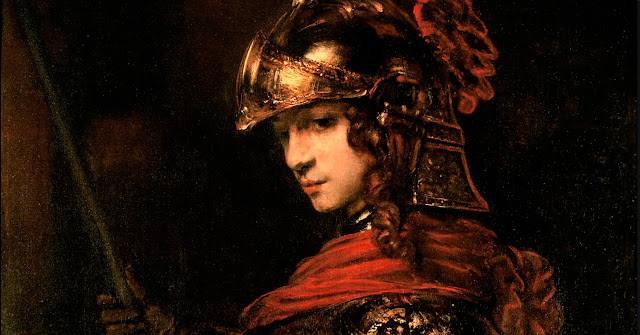Throughout history, many cultures have created sayings that denote the progression from a bad situation into an even worse outcome. In modern English, perhaps the most famous of such sayings is: “Out of the frying pan, into the fire.” Although this phrase is still widely used by many modern English speakers, the saying was actually coined more than half a millennia ago.
The first person believed to have used the saying in the English language was Thomas More, who, in 1528, used a version of the phrase in one of several treatises he published over the years against the religious beliefs of William Tyndale. Even though Thomas More was presumably the first person to write the saying in English, another author had specifically written of frying pans and fires almost two centuries before More.
The Florentine author, Giovanni Boccaccio (c. 1313-1375), wrote a huge piece of literature, labeled The Decameron, which was likely produced between the years 1349 and 1352. In the book, ten characters camp out in an abandoned villa during the time of the Black Death plague in Europe, and they decide to amuse themselves by telling each other stories over a span of ten days. Every character tells a story on each of the ten days, resulting in one hundred total tales being told by the end of the book. The theme for the stories presented on the second day in the book has to do with people who suffer misfortunes, but, in the end, they somehow receive a semblance of joy or happiness from their hardships.
The first story told in day two of The Decameron is about a group of three jesters who went to see the body of a saint being displayed in a church. Yet, the sanctuary was so packed with people that the jesters could not get close to the holy corpse. In order to bypass the crowd, one of the jesters, named Martellino, pretended to be paralyzed while the other two carried him through the crowd, all the while clamoring that their friend needed a miraculous healing. Once the jesters reached the saint’s body, Martellino pretended to be miraculously healed, but he was immediately recognized as a fraud by someone in the crowd. The outraged people in the church then began to viciously beat up Martellino, and he was only saved from the clutches of the mob when one of the other jesters called over a soldier and accused Martellino of being a thief. At that point, the battered jester was hauled away by the soldier and rescued from the clutches of the angry church-goers.
The arrest of Martellino, however, was not much of an improvement over the angry crowd in the church. He was falsely imprisoned in a dungeon for the charge of thievery and even suffered sessions of torture at the hands of his jailors. It was at that moment that Martellino’s friend who had arranged for the arrested cried out: “We have taken him out of the frying-pan, and dropped him straight in the fire” (Decameron, Second Day, first story, trans. G. H. McWilliam). Yet, the tale had turn of fortune. At the end, Martellino’s friends convinced a local prince to intervene on the imprisoned man’s behalf and all three jesters ended up better off than they began.
Written by C. Keith Hansley.
Picture Attribution: (Engraved portrait of Giovanni Boccaccio (1313–1375) by Raffaello Sanzio Morghen (1758-1833), [Public Domain] via Creative Commons).
Sources:
- The Decameron (Second Day, First Story) by Giovanni Boccaccio, translated by G. H. McWilliam. New York: Penguin Classics, 2003.









